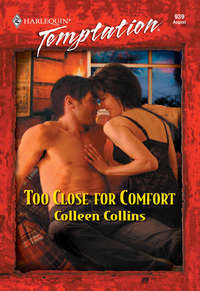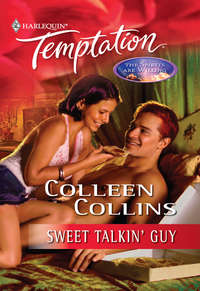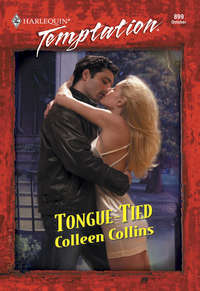
Полная версия
Hearts in Vegas
Their responses had been real, not contrived. Although there was always trickery behind a magic act, something mystical bonded an audience to a magician. They shared a belief, as far-fetched as it might seem, that everything would be all right. That the rabbit would reappear, the magician would escape the water tank, the lady sawn in half would be whole again.
Frances met the girl’s gaze. “What’s your name, hon?”
“Whitney.”
She handed the girl a bill. “Whitney, do something nice for yourself and your family.”
The girl’s mouth dropped open as she looked at the fifty-dollar bill, then her eyes narrowed with suspicion.
“I don’t do nuthin’ for money.”
“It’s a gift.”
“Why fo’?”
“For you to pay it forward someday.” She saw the confusion on the girl’s face. “Which means...when you’re all grown up, give a gift to another young girl and her family.”
As Frances headed back to her car, she heard the girl’s barely suppressed squeal, followed by the thumpity-thump of feet running across the porch and the slam of a screen door.
* * *
WHILE DRIVING PAST the Clark County courthouse a few minutes later, Frances punched in the speed-dial number for her dad’s cell, hit the speaker button and set the phone on the console. It was against Nevada law to make handheld cell-phone calls. In her opinion, that meant as long as she wasn’t holding her phone, she stayed legal.
After all she’d been through, Frances was definitely keeping her life on the right side of the law. In five years, she would no longer be under court supervision, her payments would be completed for the necklace she stole and her felony conviction would be discharged. When that day came, she would have a second chance to live her life right.
“Hey, baby girl,” her dad said over the speaker, “how’d it go?”
“Slick as glass.”
“Get the brooch?”
“Of course.”
“That’s my girl!”
As she idled at a stoplight, a black cat dashed across the street in front of the Benz. She muttered, “That’s not good.”
“Something wrong?”
“I just saw a black cat.”
“You and your superstitions,” her dad said with a chuckle. “On your way to meet Charlie now?”
“He’s in meetings until five. Figured while I’m downtown, I’ll pull some files at the clerk and recorder’s office to see if Enzo has recently used his jewelry inventory as collateral for a loan.”
“This has something to do with the brooch?”
“Enzo’s up to his teeth in litigation, probably having trouble borrowing money from banks right now. People in tight spots sometimes turn to questionable money sources, especially in Vegas. If Enzo took out a loan within the past week or so, which of course coincides with the brooch mysteriously surfacing, the identified lender might be the thief, too.”
“My daughter, Sherlock—or should I say Shirley—Holmes.”
In her rearview mirror, she saw swirling red lights from a white Crown Victoria hugging the bumper of her Benz.
Anxiety rippled through her. “Looks like I got company. Unmarked cop car’s pulling me over.”
“That’s odd. Why an unmarked?”
Seemed odd to her, too, but she didn’t have time to analyze the situation. “Charlie’s office and cell numbers are written on the bottom of the whiteboard in the kitchen. Leave messages on both that I’ve been pulled over on Third, across from the courthouse. Gotta go.”
After stopping the car, she eased the brooch from her pocket and set it carefully between the leather seat and the console, then rolled down her window and killed the engine. Slowly, she placed her hands on the steering wheel where they could be seen.
Exhaust fumes and the scents of hot dogs from a nearby street vendor wafted into the car as she watched the man in her rearview mirror unfold himself from the vehicle and swagger to her car. He wore jeans, white T-shirt, windbreaker—universal undercover-cop attire.
His steps crunched to a stop next to her window. Leaning over slightly, his blue eyes fastened on hers like steel shards to a magnet.
“Is there a problem, Officer?” she asked politely.
“Howdy,” he said, all friendly like, “mind handing over your phone and car keys, ma’am?”
Not asking for her license and registration? “Uh...isn’t this out of the ordinary?”
Looking around, he puffed out his chest while stealthily opening his jacket just enough for her to see his shoulder holster. Was this for real? The guy was acting like some kind of yahoo, showing off his big bad gun. If she wasn’t so unnerved by being pulled over like this, she might laugh.
But even yahoos could be law enforcers, and she wasn’t about to argue with a loaded gun, so she handed over her phone and key fob.
He powered off her phone and dropped it into his jacket pocket. “Step out of the car, please, ma’am.”
Once she did so, he swiftly tied her hands behind her with a plastic handcuff, then leaned in close and whispered, “Where’s the brooch?”
Maybe Enzo had been sharper than Frances had given him credit for, realized she’d lifted the real pin and left behind a look-alike. At least her dad was calling Charlie, alerting him to this snafu. He’d call the police department, get this ironed out. What a hassle.
Meanwhile, it’d be stupid to play dumb.
“Between the front seat and console,” she said, more irritated than nervous at this point because she’d just blown the case.
Sure, Charlie would make nice with the police, and Vanderbilt would be pleased about the return of the Lady Melbourne, but she’d screwed up any possibility of tracking what Vanderbilt had wanted most—the fifth-century-BC coins. Although jewelry was her forte, she’d felt a connection to those coins after learning they were the last currency to be individually hammered, not minted. It reminded her of Georgian jewelry, the last to be made with hand-cut diamonds.
After the cop retrieved the brooch and her clutch bag, he thumbed the key fob to lock the car doors.
As he escorted her to his vehicle, she memorized the numbers on his license plate, mostly out of habit. Later she’d suggest to Charlie that the next time he wanted her to steal back Vanderbilt’s property, at least give somebody in the police department the heads-up that she was working undercover and prevent a foul-up like this.
Of course, Charlie had his reasons for not alerting the police. He worried that details about her undercover work, as well as her true identity, would get disseminated too widely throughout the police department, compromising her ability to work.
He said it had happened before to other investigators.
“Watch your head, ma’am.” The officer planted his hand on her skull as if it were a basketball and guided her into the backseat of the unmarked car.
Looking through the passenger window, she eyed the dozen or so people on the sidewalk who’d stopped to watch the arrest-in-progress. A middle-aged woman in a blue sweatshirt with the word Lucky in glittery letters licked her double-dip ice-cream cone, her wide eyes glued to the event as if it were a reality TV show.
After getting into the front seat, the cop held up her clutch bag. “I want you to know that I have not opened your purse. It will remain on the front seat of my car until I return it to you.”
He was letting her know that its contents were safe, which protected him from any later accusations of theft. Definite police protocol. Yet he hadn’t followed other standard procedures.
She shifted, trying to get comfortable, an impossibility with her hands bound behind her back. “So,” she said, trying to sound unconcerned, “weren’t you supposed to read me my rights?”
“Why, thank you, ma’am,” he said, turning the ignition. “Guess I just plumb forgot. Lemme see...just like that Bud Buckley song about keeping secrets, you have the right to remain silent...anything you got any inkling to say can and will be used against you in a court of law....”
He drove, reciting her rights as if they were country-song lyrics, missing the turn to the detention center. Clearly, this wasn’t a standard arrest, and the joker behind the steering wheel wasn’t like any cop she’d ever known. A lot could go wrong while carrying jewelry worth seventy thousand dollars.
“Where are we going?” she asked, trying to sound calmer, stronger than she felt.
“I forget,” he said, “did I mention the part about if you can’t afford a lawyer? Hey, that reminds me of that ol’ Willie Nelson song ‘Mama, Don’t Let Your Babies Grow Up to Be Cowboys.’ Has that line about lettin’ kids grow up to be doctors and lawyers. And such.”
As he started singing the song, she looked out the window, feeling more annoyed than scared. As insane as this ride-along was, she didn’t have the sense she was in any danger. Her instincts told her something else, too.
She was on her way to meet the person who’d stolen the Lady Melbourne brooch.
* * *
TEN MINUTES, TWO country songs and one headache later, the unmarked car pulled into the parking lot behind the Downtown 3rd Farmers Market.
The building sat at the apex of Stewart Avenue and North Casino Center Boulevard, two streets that always bustled with traffic. Since the market only opened on Fridays, the lot was empty except for a sleek black limousine with darkened windows. In a corner of the lot, some teenage boys practiced their skateboarding moves, the wheels clattering and grinding along the asphalt. Across the street sat a bright red coffee hut.
The officer, flashing her a big ol’ welcoming grin, opened the back door and helped her out. She closed her eyes against a gust of chilly wind as he undid the plastic binding. The scent of French-roast coffee drifted past. Opening her eyes again, she rubbed her wrists while watching the limo.
“After the meeting, I’ll drive you back to your vehicle, ma’am.”
So this had been planned. “Fine,” she muttered, “just no more singing, okay?”
“Does humming count?”
She exhaled heavily. No wonder he didn’t need to recite Miranda warnings—hanging out with him for a few minutes made anyone want to remain silent.
As they walked to the limo, her nerves kicked back in.
No one is going to kill me in a luxury limo. Especially one parked in broad daylight, blocks from the Las Vegas Metro Police station. Plus those skateboarding kids were close enough to easily describe her, the officer, his vehicle and the limo.
But even after mentally rattling off logical reasons that she was safe, she still wanted to throw up.
The cop opened a back door, and she leaned inside the limo, sliding onto a curved leather couch that faced a wet bar, leather chairs and small desk. Two men sat farther down the couch.
With the daylight spilling inside, she had a good view of the occupants. The man closest to her was in his early forties, with pronounced Slavic features, startlingly blue eyes and light, short-cropped hair. He wore leather loafers, slacks and a tailored blue shirt that revealed a muscled physique. On his far side sat a thirtyish man with a tight-lipped expression and wavy dark hair. His clothes weren’t as nice—green-checkered gingham shirt, jeans, scuffed sneakers—and he wore an earbud, its wire connected to a smartphone.
The officer, quiet for once, handed the Lady Melbourne brooch to the older man, then shut the door without coming in.
“Hello, Frances,” said a man with a Russian accent.
A ceiling lamp flicked on, lighting their seating area.
She wondered how he knew her real name. “And you’re...?”
“An admirer...and a potential friend.”
Considering how matter-of-factly he accepted the brooch, as though it were his, this had to be the criminal working with Enzo. The mastermind Charlie and Vanderbilt Insurance wanted her to find. And to think she’d been convinced she’d blown this case.
Great. She’d found him. But who was he? Apparently a Russian who had an undercover Vegas cop on his payroll.
The man picked a box off the couch. As he leaned forward, holding it toward her, she caught a whiff of his cologne, a potent mix of burned cherries and leather.
“Please help yourself,” he said. “Chocolates from the Krupshaya confectionery factory of Saint Petersburg.”
“Are you from Saint Petersburg?”
He made a clucking sound. “Don’t be impolite, my dear. We’ve barely met and you’re already asking personal questions.” He gestured to the box. “I suggest the dark chocolates. They’re creamy and sweet, unlike the dry, bitter variety one finds in America.”
“No, thank you,” she said. She vaguely remembered someone telling her that refusing a Russian’s offer of food or drink was considered rude. “I’m allergic to chocolate.”
“Allergic to vodka, too?” He helped himself to a piece of candy.
“Uh, no.”
“Good. Would hate for you to miss out on all of life’s pleasures.” He settled back on the couch and, after popping the confection into his mouth, nodded to the other man, who moved forward, turning his smartphone so Frances could see the screen.
A video began playing of her and Enzo at the jewelry store, talking across the display case. It had been taken from the camera on her left, a good twenty feet away, yet it looked as though it had been shot from much closer.
Thoughts ricocheted through her mind. Enzo was either a terrific actor, emoting cluelessness as she lifted the brooch, or he had no idea she’d done it. Considering his current legal problems, she doubted he could pretend to be anything other than what he was—a troubled, weary man.
Which meant this Russian had somehow gotten hold of the surveillance film, but since he had the brooch again, why show this to her?
He said something in Russian to the younger man, who tapped the screen. The image froze just as she swapped the replica with the Lady Melbourne brooch.
“Nice work, Frances,” the older man said. “You’ve obviously done this before.”
“How do you know my name?”
“Your government has a marvelous facial-recognition database that contains every U.S. driver’s license photo. My associate Oleg hijacked the signal from the surveillance camera to his smartphone, selected a clear image of you and ran it through that database. It linked to your license photo and gave us your name.”
Hacking into a government database with such ease was mind-blowing. Either they had somebody on the inside or this younger guy was a computer genius. Good thing her driver’s license had a bogus street address, courtesy of Vanderbilt and the state of Nevada.
“Oleg has been monitoring that surveillance camera for several days,” he continued, looking pleased. “You see, I planted the Lady Melbourne brooch at Fortier’s because I hoped to attract a thief—make that a talented thief—who is knowledgeable about Georgian jewelry.”
This was a twist she wasn’t expecting, although she had a good idea where it was leading. “You want me to steal something for you.”
“Yes.”
“I would have thought you already had such contacts....”
“Ah, I did have an experienced jewel thief lined up. An accomplished gentleman, but he’s getting older and having health issues. Because I’ve been absent from your country for a while, I’ve unfortunately lost touch with other contacts.” He shrugged. “My excellent team has been working hard for several months.... Silly to kill a project because one person drops out. You see, we are like a pirate ship, staying on course despite turbulent seas, determined to find the buried treasure marked with an X on our map.”
“Seems risky to continue, though, if the person who dropped out is key to the plan.”
“But a key can be forged. I found you, didn’t I? As to risk...what beats in the heart of every thief is the thrill of uncertainty and peril. Without those, we lose our edge, our—” he rubbed his fingers together, as though touching a silky fabric “—finesse.”
His words resonated with her. She could still remember the rush after a successful pickpocket, a giddy high she had never gotten anywhere else in life. As an investigator, she sometimes felt that way after lifting an item, but it wasn’t the same. The risk was there, but it was nothing like the thrill of the illicit hunt.
She shifted slightly. “What do you want stolen?”
“I’m sure you’ve heard of the Helena Diamond necklace....”
“Of course,” she murmured.
The Helena Diamond was a heart-cut diamond necklace secretly commissioned by Napoleon with the help of friends during his exile on the island of Saint Helena in memory of his long-lost love, Josephine. Legend claimed that within the Helena Diamond was the pattern of two perfectly symmetrical hearts, only visible to the eyes of destined lovers.
The necklace disappeared after Napoleon’s death, supposedly confiscated by his enemy, Prince Metternich, whose family hid the diamond after the fall of the Austrian Empire. Decades later, it resurfaced in the hands of a London diamond merchant who sold it for fifteen million dollars to an unnamed American businessman.
“That necklace is worth millions,” she said.
“Twenty to be exact. It will be on display next month at the Legendary Gems exhibit at the Palazzo. We have the electronic know-how, locksmiths and muscle to grant you safe passage in and out. Your knowledge of Georgian jewelry—essential, as you will be mingling with antique-jewelry collectors and dealers—and your sleight-of-hand skills will do the rest.”
Her stomach fell to somewhere around her feet. What he was describing confirmed to her that he’d also been behind the theft of the ancient coins that she was so eager to find. And more than that, he was reeling her into his next major heist.
For most of her five years as an insurance investigator at Vanderbilt, she’d worked garden-variety thefts. Mid-range jewelry and antiquities stolen from homes and small businesses.
This past year, though, Charlie had been pushing her to tackle tougher, big-ticket-item cases. A theft of jewels worth half a million from a Las Vegas entertainer’s home safe. A briefcase of valuable coins stolen from a taxi. She’d solved both after weeks of investigative work, but tracking this mysterious Russian’s shenanigans with the Lady Melbourne brooch and the ancient Greek coins was starting to feel as arduous as Napoleon’s invasion of Russia.
This case was darker, more complex and frankly scarier than any she had handled before.
Part of her wanted to tell Charlie this job was out of her league and to get her out of it. But if Vanderbilt took issue with her backing out of this case and reported her insubordination to the court, the court could withdraw the suspension of her sentence, and she’d serve the remainder in jail.
“What do I get out of this?” she asked.
“Upon my receipt of the necklace, two hundred thousand dollars cash. And because of your fondness for the Lady Melbourne brooch, that, as well.”
No jewel thief would work for such a measly percentage, but of course that wasn’t what this was about for Frances. She had what most investigators worked weeks, months, for—she had an in. An invitation to the inner sanctum of her subject’s world.
Charlie would be thrilled. Nailing a master thief would be a career coup. Vanderbilt would promote him and likely invite her to stay on after her probation ended. Or she could go into business for herself as a specialized antiquities investigator.
Which meant this case, if she succeeded, could skyrocket her career. But if she failed, cripple it. Maybe permanently.
Whatever the outcome, her life would be forever changed.
“I accept your offer,” she said quietly.
CHAPTER THREE
THE RADIO PERSONALITY had just announced the four-o’clock news as Braxton parked his old Volvo S70 in front of his mom’s ranch-style home. He took a moment to look at the rock-gravel front yard, in the middle of which sat the desert willow his dad had planted on a long-ago Mother’s Day.
Several years ago, after his mother informed Braxton he was no longer welcome in her home, his childhood home, he would sometimes drive by and look at that tree, envying it for having roots when his had been ripped out. More than once, he had parked down the street, trying to work up the nerve to go the front door and ring the bell. In his mind, his mom would answer, her hair fluffed in that short style she’d always worn. She’d stare at him, her eyes shining with joyful tears, and he’d say, Mom, please forgive me.
He’d probably seen too many sappy movies growing up, but that was what he’d envisioned. But it didn’t matter, because he knew she couldn’t forgive him. Hell, he still struggled with forgiving himself.
Then one night last August, after he’d helped the Las Vegas police, Drake and the arson investigator orchestrate the sting that put Yuri in jail, he drove straight here and knocked on the door. He knew his mother had already heard what happened, including how Braxton had severed all ties with Yuri’s organization.
She’d opened the door, looking just as he’d imagined. Started crying, too. But before he could ask for forgiveness, she grabbed him in a hug and said, “Welcome home, son.”
He was opening the front door when his cell rang. Recognizing Dmitri’s number on the caller ID, he answered. After exchanging a few pleasantries, the Russian got to the point.
“That strip club you managed...it’s been shut down for liquor violations and failure to pay local taxes.”
Braxton walked across the living room, decorated in the same Swedish modern furniture his parents had picked out more than twenty years ago, and tossed his jacket across the back of the couch.
“Long time coming,” he murmured.
He heard a faint ping from down the hall, the cue that his grandmother had started her electric wheelchair. He checked the red dice wall clock on the wall above the TV. A few minutes after four was close enough to five.
He headed to the kitchen. After he moved in last August, he’d been surprised how cold and clinical that room had felt with its white walls, white appliances and stainless-steel refrigerator. Hadn’t been that way when he was a kid. Back then, the kitchen had been a mess most of the time, usually due to his recipe experimentations, and there had been family pictures everywhere.
Since moving back in, he’d taken it upon himself to bring some energy back into the room. He painted the walls a cheery yellow, hung curtains decorated with sunflowers and put family photos everywhere, including a picture of his dad with his favorite comedian, Jerry Lewis, at Bally’s. The only time his dad had asked someone he’d just met to call him Benny.
But more important, Braxton cooked here almost every night, often with his mom, the two of them filling the room with delicious smells, a few recipe bombs and a lot of laughter.
He headed to Grams’s special cabinet and grabbed a martini shaker while listening to Dmitri.
“Everyone I’ve talked to in the Russian community,” he continued, “said you, Braxton, not Yuri, were the reason behind Topaz’s success.”
Braxton wasn’t sure how to respond to that, because the compliment was a double-edged sword. Yeah, he’d been a good manager, in fact a damned good one, but he’d gotten dirty along with the business.
“Does this have something to do with what you wanted to discuss?” He nestled the phone against his shoulder and filled the shaker with ice.
His grandmother, wearing a shiny cocoa-colored caftan and gold shoes, glided across the linoleum floor in her wheelchair, her puf of white hair glowing like a sunlit cloud under the lights. Seeing he was on the phone, she halted and pressed her finger to her ruby-red lips, indicating she’d be quiet.
He winked at her, wondering how many other eighty-five-year-old women purchased half a dozen tubes of crimson lipstick after reading that “women of a certain age” should only ever wear more discreet shades. Grams, the makeup activist.
“Yes, it does,” Dmitri answered. “I’m opening a club in Vegas later this year and wondered—”
“I’m not interested.” It turned his stomach to even think of going back to such a job. In the six months since he’d stopped managing Topaz, he’d been inside a strip club only once, and that was for a buddy’s bachelor party.






